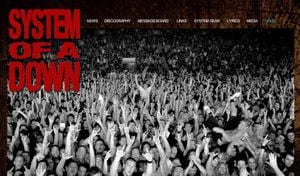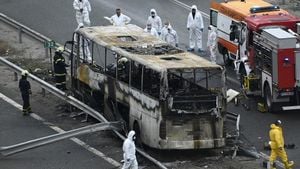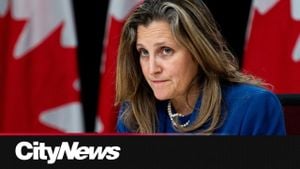Berlin was marked by dramatic political shifts on December 16, 2023, as Federal Chancellor Olaf Scholz faced the Bundestag for a confidence vote, one aimed at either reaffirming his leadership or paving the way for new elections. The results were decisive: Scholz lost the confidence of the Bundestag, with 207 members expressing support, 394 rejecting him, and 116 abstaining. This outcome not only stripped him of parliamentary backing but also set the stage for significant changes anticipated by the German electorate.
Alexander Dobrindt, leader of the CSU's parliamentary group, was not shy about delivering sharp criticism directed at Scholz. Addressing the assembly, he stated, "Herr Bundeskanzler, es ist grotesk, dass Sie sich erneut zur Wahl als Bundeskanzler stellen." This declaration pointed to the broader sentiment among opposition members who believe Scholz’s inability to maintain the coalition demonstrates incompetence to govern effectively. His remarks emphasized how Sylvester Mathies began to paint sovereignty for him as he headlined the arguments against Scholz.
During the session, Dobrindt reflected on the sentiment among the populace, noting, “Es ist gut, dass die Ampel heute ihr Ende genommen hat.” He articulated the perception of this day as one providing relief, as many Germans felt the current government had exacerbated national divides rather than healed them. Dobrindt's remarks were not just personal attacks; they symbolized the collective frustration with what he called the “massive damage” caused by the Ampel coalition.
He did not stop at mere insults. Dobrindt argued, “Wer seine Koalition nicht zusammenhalten kann, der darf nicht Bundeskanzler werden.” He believed this failure indicated Scholz's inability to lead the nation effectively. His scathing comments set the tone for subsequent debates, whereby CDU leaders echoed similar sentiments, questioning Scholz’s political competency.
Friedrich Merz, also from CDU, weighed in, reinforcing Dobrindt’s claims. He called for clarity and principles, indicating the upcoming election would likely be combative. Merz claimed, “Die SPD vor allen Dingen wird nicht davor zurückschrecken, auch Dinge zu sagen, die einfach wahrheitswidrig sind.” This assertion pointed to the larger narrative of distrust. He forecasted significant challenges for the current administration as they transition toward impending elections.
Christian Lindner, leader of the FDP and previous finance minister, also expressed his disappointment and eagerness for change. Calling the economic situation dire, he declared Scholz's government had lost its way, stressing, "Scholz hat das Vertrauen nicht verdient.” Lindner's frustration stemmed from perceived mismanagement leading to growing economic concerns amid voter dissatisfaction with the current administration.
The aftermath of this voting session will likely linger for some time, with Scholz’s proposal to dissolve the Bundestag now resting with President Frank-Walter Steinmeier. Should the President agree, elections are projected for February 23, 2025. The anticipation surrounding these state changes signals the immediate impact of the vote on the future political climate, likely to be laden with strategic negotiations among parties.
Dobrindt’s rhetoric encapsulated the feelings of many opposition members who believe now is the time for accountability and reassessment of policies executed during the past years under the Chancellor’s leadership. He characterizes the period leading up to the vote not just as singular choices made, but as part of a continuous effort to reshape the political dynamics within Germany.
Following this decisive vote, the German political ecosystem faces the challenge of rebuilding its base support through upcoming elections. The call for collaboration and constructive dialogues among parties cannot be overstated, as both the electorate and history will be watching closely. It becomes evident how every political opinion expressed during this tumultuous period will soon enter the broader discussions leading up to the elections.



